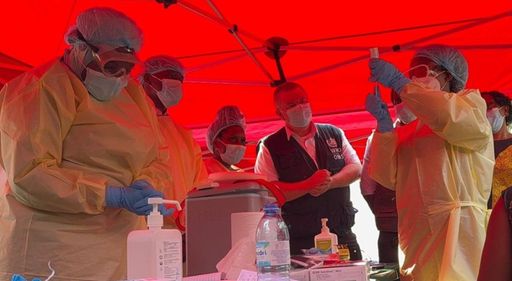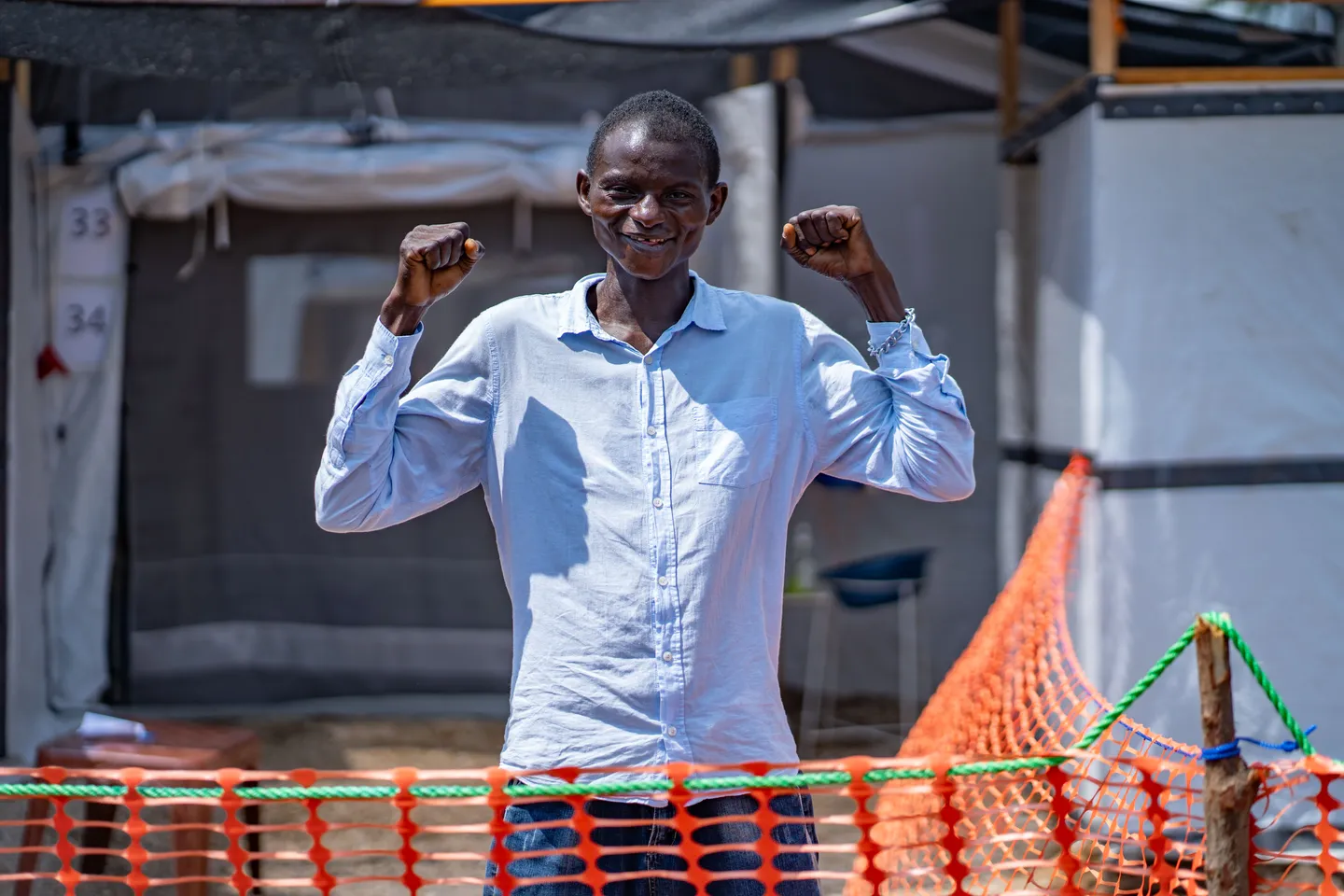Elie Minema Katumbayi survived Ebola. Now, 42 days stand between him and medical history.
The 21-year-old Congolese farmer walked out of a treatment centre in Bulape on October 19 as the last confirmed patient in an outbreak that killed 34 people in the Democratic Republic of Congo (DRC).
If no new cases emerge by early December, his recovery will mark the end of a six-week crisis in one of the country's most remote regions.
That also potentially makes Minema the last Ebola patient on record – a feat that, if achieved, would be a hard-fought reward for healthcare teams battling a virus as stubborn as it is dangerous.
In Minema's case, the fever that nearly killed him struck without warning while he was working in the fields. "I forced myself to return home," he recalls.
By the time he reached the gate to his home, the father of three could barely stand. "I had run out of the last ounce of strength in my body. Friends helped carry my bags to the house," he tells TRT Afrika.
What followed was a rapid downward spiral that would bring him face to face with the severity of a disease known to have a high fatality rate.
"I didn't think I, of all people, would go down with Ebola," he told a World Health Organisation (WHO) team after his discharge.
Sudden onset
Doctors say what makes Ebola deadly is how swiftly a patient's condition can deteriorate. The usual symptoms are fever, fatigue, muscle pain, headache and sore throat, followed by vomiting, diarrhoea and abdominal pain.
Bleeding, while associated with the disease, occurs less frequently and typically appears later. Ebola typically kills half of those infected during each outbreak.

Minema, a preacher when he isn't toiling in the fields, believes only providence could have saved him. "I thank God, the President and the government for sending an ambulance for me," he says. "If you hadn't acted quickly, we would all be dead."
At the hospital where he was treated, the young man feared the worst as patients around him succumbed to Ebola. “Most of the patients I found at the hospital died,” recalls Minema, his voice trailing off.
While the official casualty count remains 34, WHO does not rule out Ebola being responsible for another 11 deaths.
Lucky survivors
Minema was one of only 19 survivors among 53 confirmed cases since healthcare authorities in DRC officially declared the outbreak in Bulape on September 4.
"The recovery of the last patient just six weeks after the outbreak is a remarkable achievement that shows how collaboration and expertise helped overcome challenges to save and protect lives," says Dr Mohamed Janabi, WHO's regional director for Africa.
What made the task even harder is that Bulape is in the hinterland and hard to reach.
Despite inadequate infrastructure, the country's health ministry, with support from WHO and other partners, rapidly scaled up the response. A 32-bed treatment centre was established in record time, while a vaccination drive covered over 35,000 people.
WHO and its partners remain active on the ground, working with the government to maintain measures for swift detection and response to any cases as the countdown continues.
Minema is home with his family and community, grateful for everything that saved his life. He would be happier still to know that he might be the last one to have gone through the trial of surviving Ebola.
























